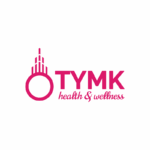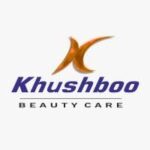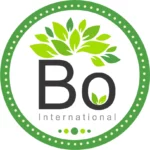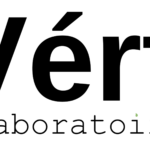What are private label cosmetics?
Private label cosmetics are beauty and skincare products manufactured by one company, but branded and sold by another under their label. This business model allows companies to offer a line of beauty products without investing in extensive research, development, and manufacturing. Instead, they focus on marketing and branding, relying on a specialized manufacturer for production. This flexibility enables entrepreneurs and established brands to customize products, control branding, and quickly introduce new items to market without in-house production challenges. Private label cosmetics encompass various beauty products, such as makeup, skincare, haircare, and fragrances.
What is a cosmetics contract manufacturer?
A cosmetics contract manufacturer is a specific type of company that produces beauty and skincare products for other brands through a contractual agreement. They have expertise in formulating and developing a range of cosmetic items, including makeup, skincare, haircare, and fragrances. these manufacturers offer brands the advantage of outsourcing production. This allows companies to concentrate on branding, marketing, and distribution, while the contract manufacturer manages product development, quality control, and large-scale production. This collaborative model enables brands to focus on bringing innovative and high-quality cosmetic products to the market, avoiding the need for in-house manufacturing capabilities.
How does private labeling in cosmetics work?
Private labeling in cosmetics means a company outsources the production of beauty and skincare products to a specialized manufacturer, That manufacturer then produces these items under the client’s brand name. The process typically begins with the client selecting pre-existing formulations or collaborating with the manufacturer to create customized products. The client has the flexibility to design packaging, choose branding elements, and establish the product’s identity. The private label manufacturer handles the production, ensuring the products meet quality standards and regulatory requirements. Once manufactured, the cosmetics get shipped to the client, who then sells them under their brand. This business model allows companies to enter the cosmetics market swiftly without the need for extensive in-house development and manufacturing capabilities, focusing instead on marketing, branding, and customer relationships.
What are the benefits of private label cosmetics?
Private label cosmetics give businesses entering the beauty industry several advantages. First of all, companies can quickly introduce a cosmetic line without the time and cost of in-house research and manufacturing. This facilitates a swift market entry and easy adjustments to trends. Secondly, businesses can personalize products, packaging, and branding, establishing a distinctive identity for their unique cosmetic line. Moreover, outsourcing manufacturing to specialized facilities allows companies to focus on marketing, sales, and customer relationships, reducing the financial burden of in-house production. Private label cosmetics provide a cost-effective solution for delivering high-quality products without the extensive investment in infrastructure needed. Overall, the benefits of private label cosmetics, including speed to market, flexibility, and cost efficiency, make it an appealing choice for a diverse range of brands.
How to start a private label cosmetics business?
Launching a private label cosmetics business involves several key steps. First, you should begin with market research to identify trends and preferences, then choose a niche, and next select high-quality products. You will also need to connect with reputable private label manufacturers to produce your cosmetics, collaborating on formulations, packaging, and branding. Additionally, you will need to obtain legal certifications and ensure regulatory compliance, develop a robust marketing strategy, utilize online platforms and social media, establish a reliable supply chain, and focus on building strong customer relationships. Also, a key step is to prioritize consistent quality control to ensure customer satisfaction. Following these steps will help aspiring entrepreneurs navigate the process of successfully launching a private label cosmetics business.
How much do private label cosmetics cost?
The cost of private label cosmetics is influenced by factors like product complexity, quantity, packaging, and formulation intricacies. Initial expenses cover product development, custom packaging, and branding, with formulation costs varying for unique or specialized cosmetics. Manufacturing costs depend on batch size, ingredients, and production complexity. Regulatory compliance and legal certifications may add to expenses. Ongoing costs for marketing, distribution, and quality control should be considered. While private-label cosmetics provide cost advantages over in-house production, entrepreneurs must carefully budget and negotiate with manufacturers to align costs with their business goals and market positioning.
What is the market size of the cosmetics industry?
The global cosmetic contract manufacturing market, valued at $13.2 billion in 2022, is projected to grow to $21.7 billion by 2030, with a CAGR of 6.4%, fueled by the demand for cost-efficient outsourcing and specialized expertise. Concurrently, the private label cosmetics sector, valued at $24.6 billion in 2021, is anticipated to reach $39.8 billion by 2028, growing at a CAGR of 7.1%, driven by factors such as cost-effectiveness and consumer awareness. Both sectors are embracing clean, natural formulations to meet eco-conscious demands, fostering innovation in ingredient sourcing and manufacturing processes. Moreover, the adoption of technologies like AI and AR is facilitating personalized cosmetic solutions, reflecting the market’s response to evolving consumer preferences and driving significant growth prospects in contract manufacturing and private-label cosmetics.
How to find private label & contract manufacturers for cosmetics?
Finding private label and contract manufacturers for cosmetics can involve several steps. Here’s a guide to help you navigate the process:
- Define Your Needs: Know your product requirements, budget, and quantity.
- Research Online: Use platforms like Find My Manufacturer to search for manufacturers.
- Attend Trade Shows: Meet potential manufacturers at industry events like Cosmoprof Worldwide.
- Network: Connect with industry peers for recommendations and insights.
- Utilize Social Media: Join industry-specific groups on LinkedIn and Reddit.
- Contact Associations: Reach out to organizations like PCPC or ICMAD for referrals.
- Request Samples and Quotes: Evaluate quality, pricing, and lead times.
- Visit Facilities: If possible, assess production capabilities firsthand.
- Review Contracts: Ensure terms are favorable before finalizing agreements.
- Start Small: Begin with small orders to gauge reliability and quality.
By following these steps and conducting thorough research, you can find the right private label or contract manufacturer for your cosmetics business. Remember to prioritize factors such as quality, reliability, and communication throughout the selection process.









